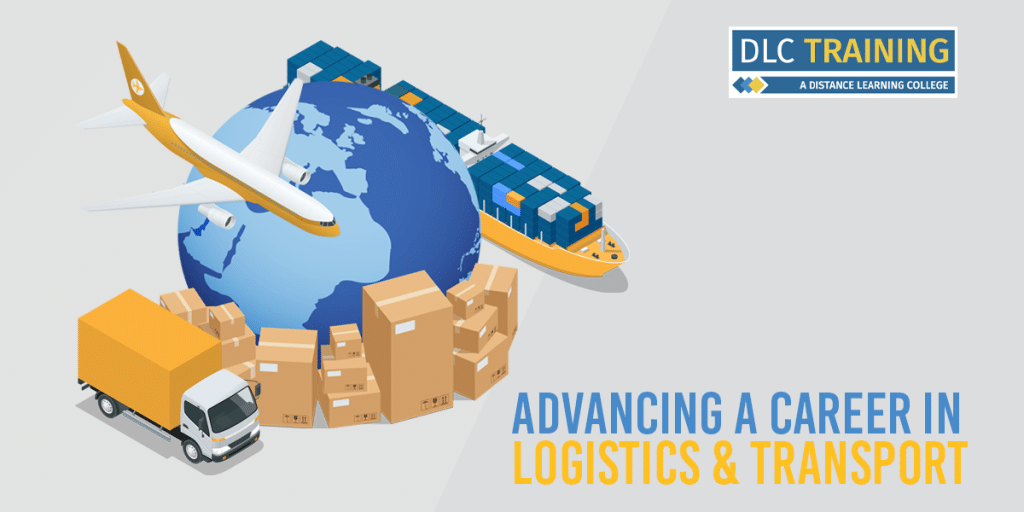After starting a career in logisitcs, there are many opportunities for career development. With the right skills, knowledge, and certifications, you can advance into leadership roles, work in multinational companies, and contribute to the development of innovative and sustainable supply chains. There are a number of ways to support your advancement in the logistics industry, including:
- Logistics Training
- Institute Membership
- Networking

Logistics Training
When searching through the different career opportunities in the logistics sector, you’ll notice that all roles above introductory level require candidates to have some formal training and qualifications. Alternatively, they may suggest that the candidate must be open to training for their role. This highlights how important training is when progressing in the logistics sector.
Logistics training can take many forms, from short training sessions to formal qualifications. The best route to take will depend on what you are hoping to achieve as to what route will be best. For example, if you are looking to learn a specific skill, a shorter course may be suitable. However, if you’re looking to develop your skill set in order to progress to the next level, a more in-depth training course will be beneficial for your development.
Logistics Training Courses
Logistics courses are available at a range of levels, but the level that would be most appropriate depends on your current experience in the industry. The Institute of Supply Chain Management (IoSCM) offers a range of Logistics and Transport Diploma qualifications to suit individuals at various stages of their careers.
Level 3
A level 3 course is beneficial for those with experience in first level roles, such as transport administrator, vehicle loader, or transport coordinator. The level 3 will prepare you to progress into more advanced roles such as logistics specialist, and first line management roles such as transport supervisor, or logistics team leader.
Level 5
A level 5 course is a natural progression for those with first line management experience looking to progress into middle manager roles such as transport and distribution manager. It’s also beneficial for those who have recently been promoted to a management role, who would be looking to enhance their skills while they work within the role.
Level 6
Level 6 is suitable for managers looking to enhance their knowledge while also being introduced to strategic elements. This level will prepare you for roles such as senior transport manager and head of logistics.
Level 7
Level 7 is the highest logistics and transport qualification level available. This level is particularly beneficial for senior managers with extensive experience in their role. By achieving this level qualification, it formalises your experience at the highest level in the industry. It is also beneficial for those with extensive middle management experience who may be looking to progress to senior management.
Institute Membership
Membership with a recognised institute offers access to invaluable resources like industry news, trends, and best practices. As well as this, it connects you with a network of like-minded professionals. This gives you an inside track on innovations, regulatory changes, and emerging technologies, enabling you to stay competitive in a fast-evolving sector.
Another key benefit of membership is the increased credibility and authority it provides. Gaining post-nominal letters to user after your name – such as ESCM (Expert Member of IoSCM) – immediately signals your commitment to the industry. This not only strengthens your standing within the sector but also boosts your appeal to employers, showcasing you as an expert dedicated to high standards.
For anyone serious about progressing in logistics, gaining membership with a respected institute should be a priority. It’s an investment in your personal brand, your skillset, and your future in the field. IoSCM offers membership at a range of levels, depending on your current experience. Levels you may be eligible for include:
- Associate
- Professional
- Expert
- Fellow
Visit IoSCM to find out more about membership.
Networking
To advance your logistics career, actively engaging in networking opportunities is crucial. Networking helps you connect with professionals in your field and across the wider industry, allowing you to learn from others’ experiences and insights. By building relationships with experienced professionals, you can gain knowledge that may be harder to gain through formal training. These connections can lead to valuable collaborations, which can boost your skillset, increase your visibility, and expand your professional portfolio.
In addition to knowledge sharing and development, networking is a powerful tool for discovering new job opportunities. 40% of all roles are filled through personal recommendations and internal referrals, and a strong professional network increases your chances of being considered for these positions. Engaging in industry events, conferences, webinars, and online platforms like LinkedIn can put you in touch with key decision makers.
Learn more about logistics training by viewing our online logistics and transport courses. Want further information on advancing your logistics career? Our friendly Course Advisors are on hand to help, contact us today.